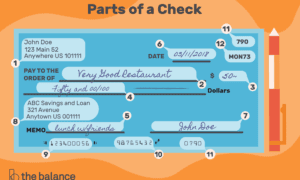Whether it’s your first cosy nest or an upgrade for your growing family, buying a house is really fascinating. The excitement of open houses can easily overwhelm you; picture your future life inside those four walls, and mentally arrange your furniture. You have probably spent years saving that deposit, figuring mortgage payback, and at last located the one. You review the asking price, determine it is manageable, and prepare to proceed.
But partner, hold your horses just a moment. Although the purchase price is definitely the most often seen figure, it is not the only one you should consider. Many would-be homeowners find themselves caught off guard by a whole range of extra expenses, the hidden ones just beyond that attractive asking price. Ignoring these could cause the dream to become a significant financial burden.
So let’s draw back the curtains and have an honest conversation about the extra money you need to allocate for pre-key pickup. Ensuring that your property trip is seamless sailing rather than a frantic dash depends on your preparation.
Before You Even Shake Hands: Pre-Purchase Research Costs
Before you begin to emotionally connect and reject an offer, you need to conduct some important checks. Though they are not free, they could save you a fortune over time. Consider them as a sort of mental investment in peace.
Key Inspections and Reports:
- Building and Pest Checks: You definitely want a qualified professional to crawl under the house and investigate the roof cavity for structural problems, wobbly wiring, plumbing issues, or unwelcome critters like termites. While skipping such an inspection could seem like saving a few hundred bucks now, finding significant termite damage or a crumbling foundation after you buy the house could cost tens of thousands.
- Strata Report: You’ll also need a strata report if you’re looking at a strata scheme apartment, townhouse, or unit. This file explores the body corporate’s management and financial situation. It exposes things like:
- Planned major works (which could mean large special levies arriving your way)
- Continuous conflicts
- The state of the sinking fund—the kitty for future repairs
- The general harmony, or lack thereof, within the complex.
Once more, it is an upfront expense, but knowing what you are getting into is absolutely invaluable.
Initial Legal Consultation:
At this point, you might also have a first conversation with a conveyancer or solicitor to learn the process, which might cost a nominal charge.
Negotiating the Deal: Big Ticket Purchase Prices
Alright, you love the place, you have done your checks, and your offer has been approved. Congratulations on your offer being approved! The major expenses associated with the actual transaction are now approaching.
Stamp Duty:
Usually, Stamp Duty is the heavyweight champion in this area. Mate, stamp duty is a state and territory government tax paid on property purchases; it can be rather potent. The amount differs significantly depending on:
- The state or territory where you are purchasing
- The property’s value
- Whether it is your main house or an investment
- Whether you qualify for any first home buyer concessions or exemptions.
Don’t underestimate this cost; it can sometimes run into tens of thousands of dollars and is often the biggest single outlay following the deposit. To get an accurate estimate early on, use an online calculator for stamp duty specific to your state.
Legal and Conveyancing Fees:
The legal and conveyancing charges come next. To handle the legal side of changing ownership, you need a qualified professional—either a licenced conveyancer or a solicitor focused on property law. They will:
- Check titles
- Go over the contract of sale
- Contact the seller’s representatives and your bank to make sure all legal criteria are satisfied
- Figure settlement adjustments (such as council rates and water)
- Handle the last settlement process.
Although their rates vary, it’s advisable to get some quotes. Make sure you pick someone dependable and thorough. There is no area to take shortcuts here.
Mortgage-Related Costs:
There are then the expenses connected to mortgages. You will deal with a lender unless you are purchasing outright with cash (great on you!). Many times, banks and other financial companies charge different fees related to opening your home loan. These fees may include:
- Loan application or establishment fees
- Valuation fees (where the bank assesses the property’s value to ensure it provides sufficient security for the loan)
- Additional administrative costs.
Lender’s Mortgage Insurance (LMI): The most important fee to be aware of is Lender’s Mortgage Insurance (LMI), especially if you are borrowing more than eighty percent of the house’s value. Should you default on the loan, LMI shields the lender—not you. Usually paid upfront or added to your loan balance, it can be a major outlay of funds—often thousands or even tens of thousands of dollars—that will pay interest over the course of the loan.
Moving Day and Beyond: Settling-In Financial Issues
You’ve survived the settlement; congrats; the keys jangle in your hand. Still, the spending isn’t entirely under control yet. You now have to really relocate your life into your new home.
Moving Costs:
From hiring a ute and bribing friends with pizza and beer to hiring professional removalists for the whole pack-and-move service, moving expenses can vary. If you are handling the move yourself, please keep in mind the costs for items such as:
- Bubble wrap
- Tape
- Packing boxes.
Utility Connections:
You will also have to link the key services. Often charging connection or setup fees, electricity, gas, water, and internet providers help to turn everything on in your name at the new address. Though generally in smaller quantities, these add up.
Initial Repairs and Maintenance:
One should also budget for some first repairs and maintenance. Even if the building inspection came back clear, you might want to fix or change little things right away. Perhaps a leaking tap requires attention, certain rooms require a fresh coat of paint, or the carpets could benefit from a professional cleaning.
Sometimes minor problems arise just after you move in that weren’t clear-cut before. Having a little buffer set aside for a property handyman to handle these quick, odd tasks will help reduce stress and enable the place to feel like home much faster.
The Gift That Continually Gives: Constant Ownership Expenses
Having property comes with ongoing obligations and expenses; it’s more than just mortgage payback.
Regular Bills and Levies:
- Council Rates: Your regular budget will have to consider council rates. Your local council charges these rates to fund services like parks, libraries, waste collection, and local road maintenance.
- Water Rates: Usually involving both a fixed service charge and a cost based on usage, you will also usually pay different water rates covering water supply and sewerage services.
- Strata Levies: Strata levies, sometimes known as body corporate fees, will be a regular cost if you purchase strata property, typically paid quarterly. These costs cover building insurance for the shared construction, maintenance, and administration of common property (including lifts, pools, gardens, and hallways) and contributions to the sinking fund for future significant works.
Insurance and Maintenance Fund:
- Building and Contents Insurance: Building and contents insurance is absolutely necessary regardless of the kind of property. Usually, your lender will demand building insurance as part of the mortgage, but contents insurance for your possessions is equally vital.
- Ongoing Maintenance: Remember to perform regular maintenance as well. Houses require regular maintenance. Gutters need to be cleaned; paint fades; appliances finally fail, and unanticipated repairs show up. To pay for these unavoidable expenses, smart homeowners budget a consistent amount into a maintenance fund, maybe aiming for around 1% of the value of the house annually.
Thinking Ahead: Future Plans and Expert Advice
You might begin to dream bigger as you get comfortable. Maybe the kitchen could have a modern makeover down the road, or perhaps you are considering building a home office or extending a house to fit a growing family. Although these aren’t direct purchase expenses, long-term financial planning for homeowners includes knowledge of the possible costs of future renovations or improvements.
Professional Guidance:
Getting professional help is usually money well spent since negotiating the labyrinth of property purchase and related expenses can be overwhelming.
- Solicitors and Conveyancers: We have discussed solicitors and conveyancers already.
- Buyer’s Agents: Some purchasers also decide to use buyer’s agents. These experts help the buyer find appropriate homes, evaluate their worth, negotiate the purchase price, and negotiate the whole process— acting just for her. Although their services cost (usually a flat fee or a percentage of the purchase price), their knowledge could save you money, time, and stress—especially in competitive markets or if you are not familiar with the buying process. They are particularly skilled at spotting potential problems or expenses you might otherwise overlook.
Beyond the Basics: The Final Word on Budgeting
Purchasing Australian property marks a major turning point and is quite doable. The secret is to approach it fully aware of all the financial obligations involved, not only the figure on the sale sign, and with your eyes wide open. From stamp duty and legal fees to moving expenses and continuous maintenance, these ‘unseen’ costs are a basic component of the homeownership balance.
You can approach the purchase of your property with confidence by doing your homework, obtaining accurate quotes, using online calculators, and creating a thorough budget including all these expenses. Being ready helps you really savour the thrill of discovering your new house, free from unwelcome financial surprises hiding around. Sort these expenses into your budget, and you’ll be well on your way to contentedly living in your new Australian house.
Share Your Thoughts!
What then surprised you about hidden expenses when you purchased real estate? In the comments below, share your experiences or any additional advice; let’s support one another on this road!



































